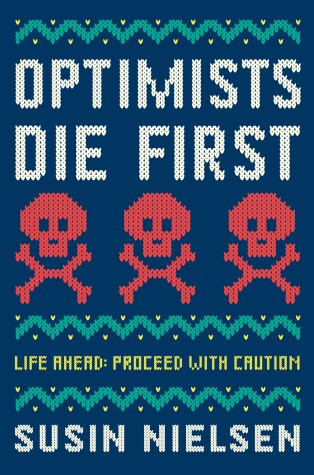Most of this book was awesome. This was unputdownable- I read the entire thing without even getting up once. That is not something that ever happens, but I was just so into this book that I couldn't stop. Plus it is shorter, and paced well, so that helps. Anyway, let's move onto the good stuff, shall we?
What I Liked:
- First, Petula isn't at the most severe end of her mental illness- she's clearly still struggling, but she isn't at her worst; she's already begun to heal a bit. I think that's important to note. I do think that her anxieties and her fixations were quite realistically depicted. She thought things during the book that I had to stop and think "wow, so I am not the only one who thinks that too!", and frankly, it made me feel less alone.
- To that end, the humor in the book was really great. I know not everyone will agree with that, but I think that Petula was far enough along in her recovery process that the humor really worked in the story. It made the dark moments a little less painful, and I think it really brought the therapy group together, too. Had they not been willing to share those weird moments, they may never have ended up being close- and that helped them all, really. And the characters in the therapy group were all quite wonderful, too. They all were well fleshed out, diverse, and brought a lot of insight to the group and to Petula.
- I thought the family dynamic was well portrayed and quite honest . These people have been through absolute hell. They care about each other, but they also each have their own demons. I loved how much both parents clearly cared about Petula, even though they weren't always perfect and dealing with their own stuff. Petula had a defined, healthy relationship with each of her parents, and that to me was a huge win.
- The romance was fun, and I liked it, for the most part. We'll get into why I didn't fully in a minute, but at the start, I did enjoy it. Jacob was funny, and he really created a sense of camaraderie in the therapy group. Plus, their relationship eventually lead Petula to have some very positive sex talk moments with her mom, which is definitely refreshing. In fact, during the book, I didn't really see Jacob as "curing" Petula, he just happened to be a good influence in her life at a time that she was already kind of on a precipice of change for herself.
What I Didn't:
So here we are. The "one thing" I couldn't get past in the book. I will tell you what it is, but I can't go into details unless it is under a spoiler tag. So anyway, at some point, Jacob enters the "savior" role. I hadn't seen him in that capacity, but apparently, he was. Now, I will explain further, but it's spoilery, so read at your own discretion.
When Petula finds out some unsettling info about Jacob, the group tries to talk her into forgiving him. He had lied to her, but I think forgiveness could have been achieved. Anyway, I was with them, when they talked about how he brought something special to the group and such, but then they legit called Petula out, saying things like "You were this paranoid little freak. Constantly dousing yourself in hand sanitizer. Leading this narrow, sad little life." or "You were weird, Petula." And my personal favorite (sarcasm) "Jacob resuscitated you." And then the "counselor" AGREED. WHAT!??!!? WHAT THE WHAT!? I was so angry, because I felt like all the GOOD that the book had done had been erased by these few pages of dialogue.
The significant other as a savior thing has always bothered me, especially in mental health books, because I just can't get past the message that it could send, especially to someone who is suffering from a mental illness. I'd never want someone to think that they're doomed to be suffering forever because some cute love interest didn't waltz into their life.
Bottom Line: I am really torn here. I loved this book. Until this one thing, it was headed to a really high rating. I won't completely trash the rating, especially for just this one fault (though for me personally, it is quite a bit one).
